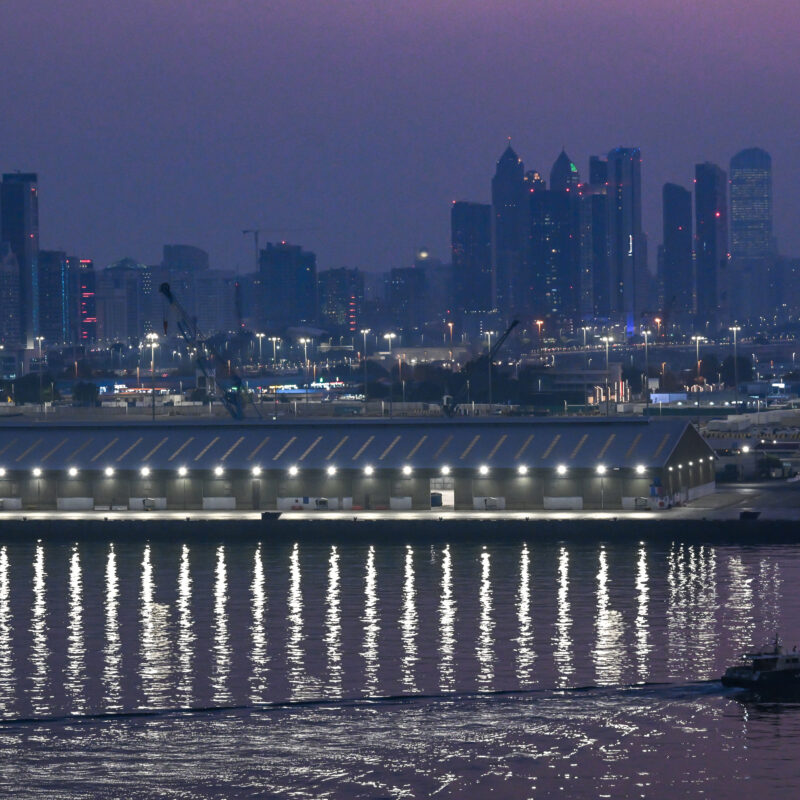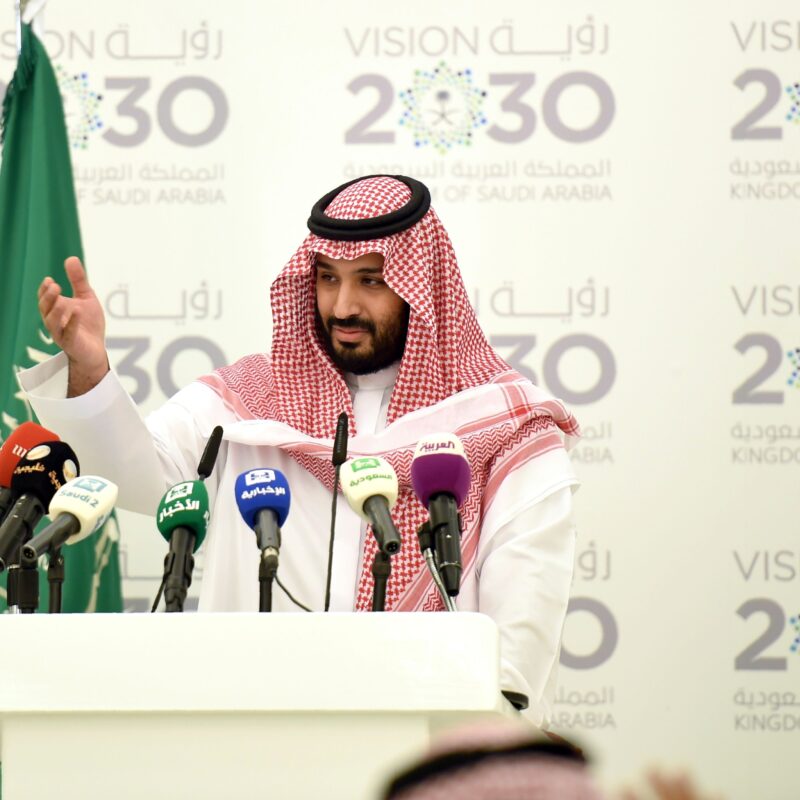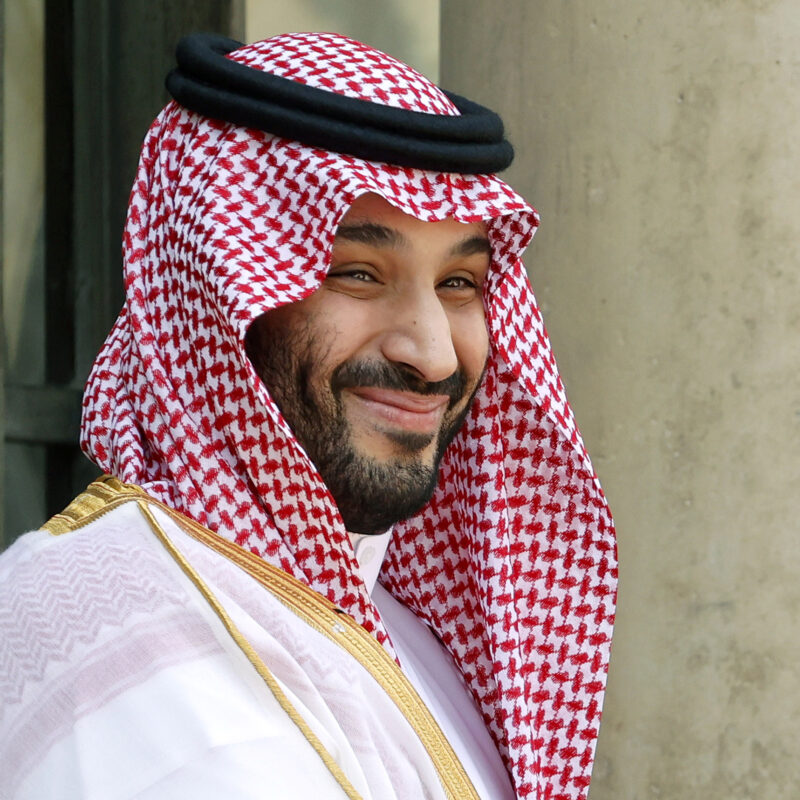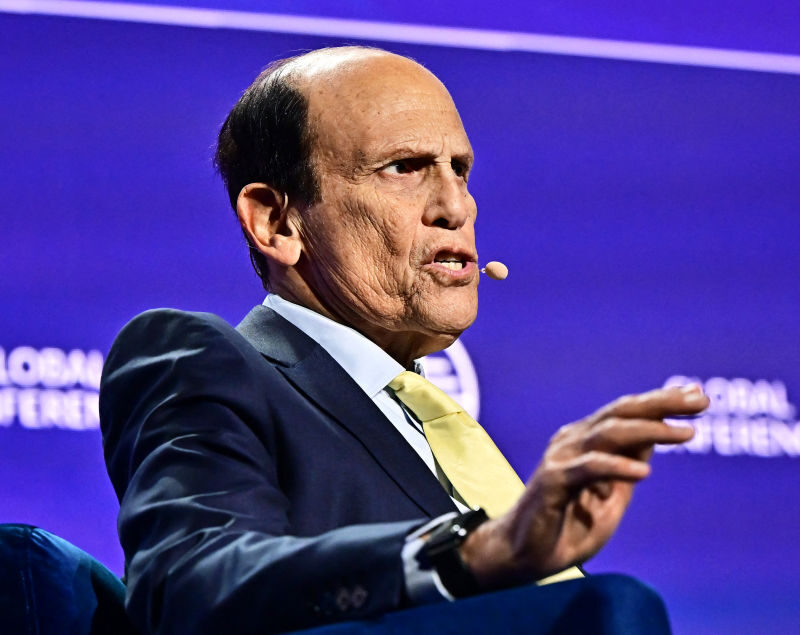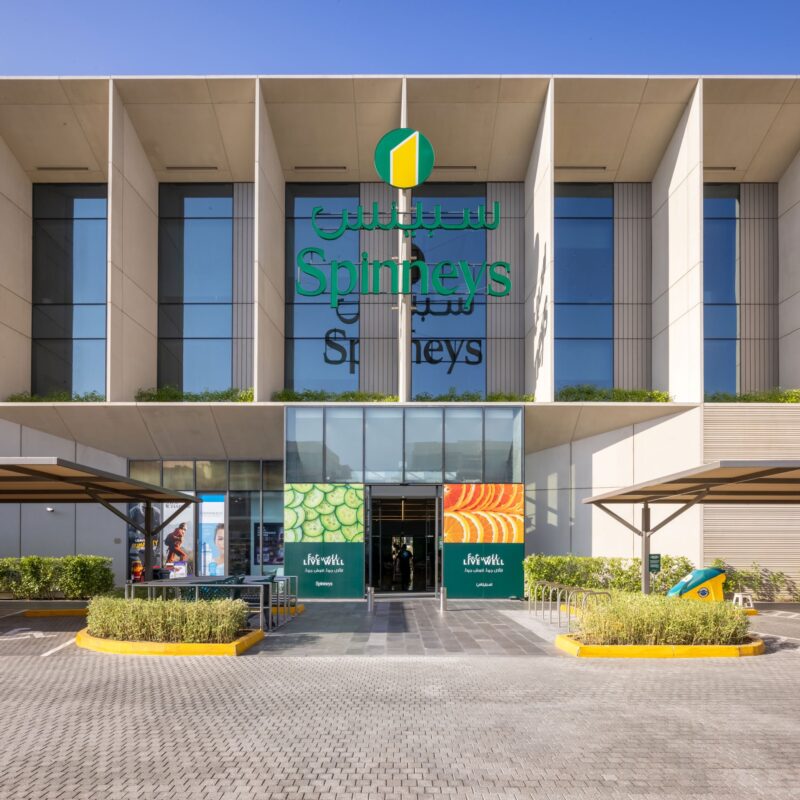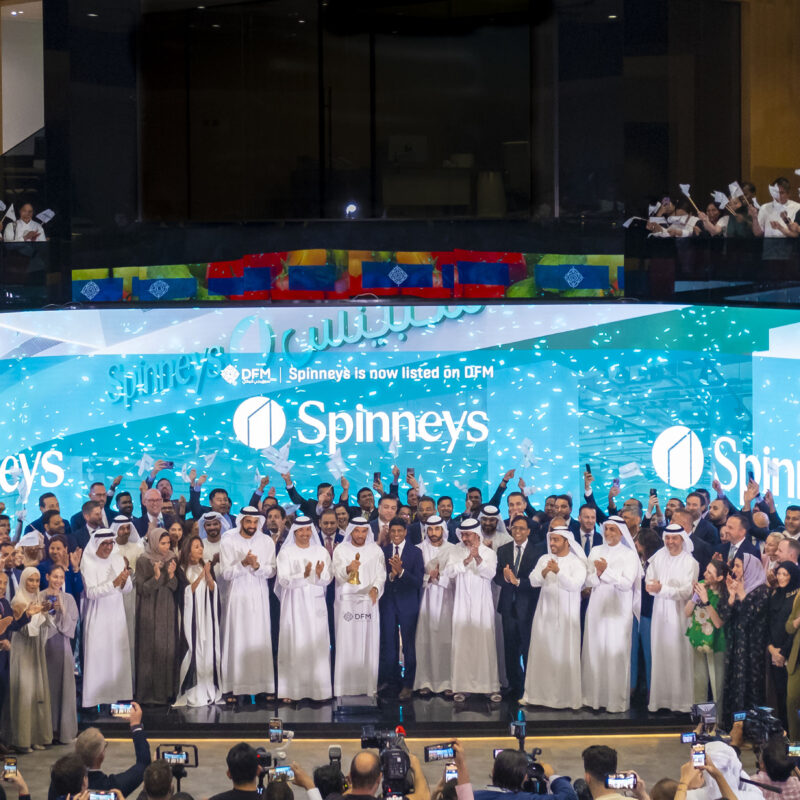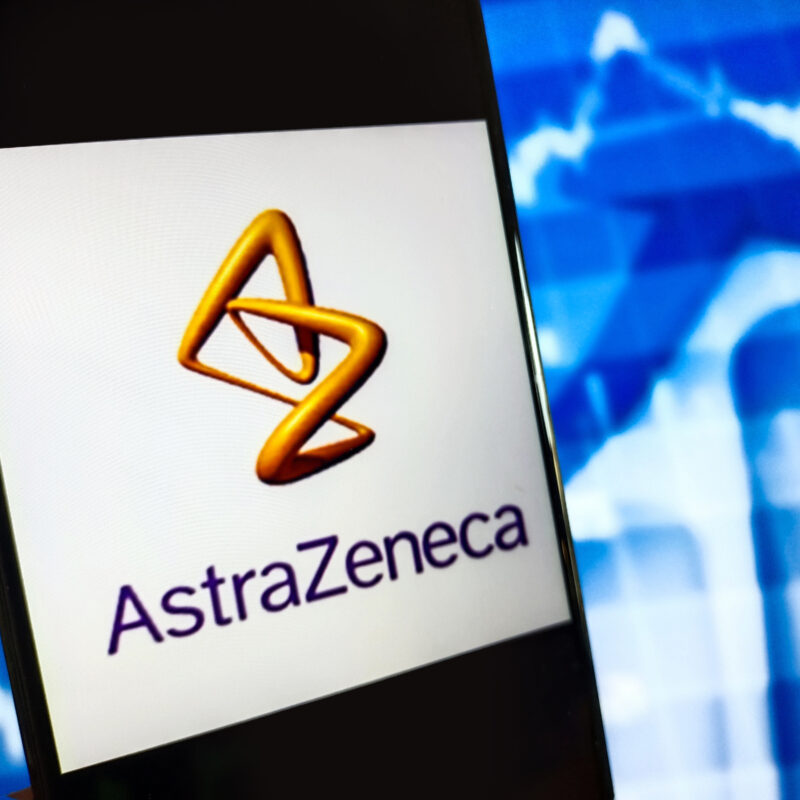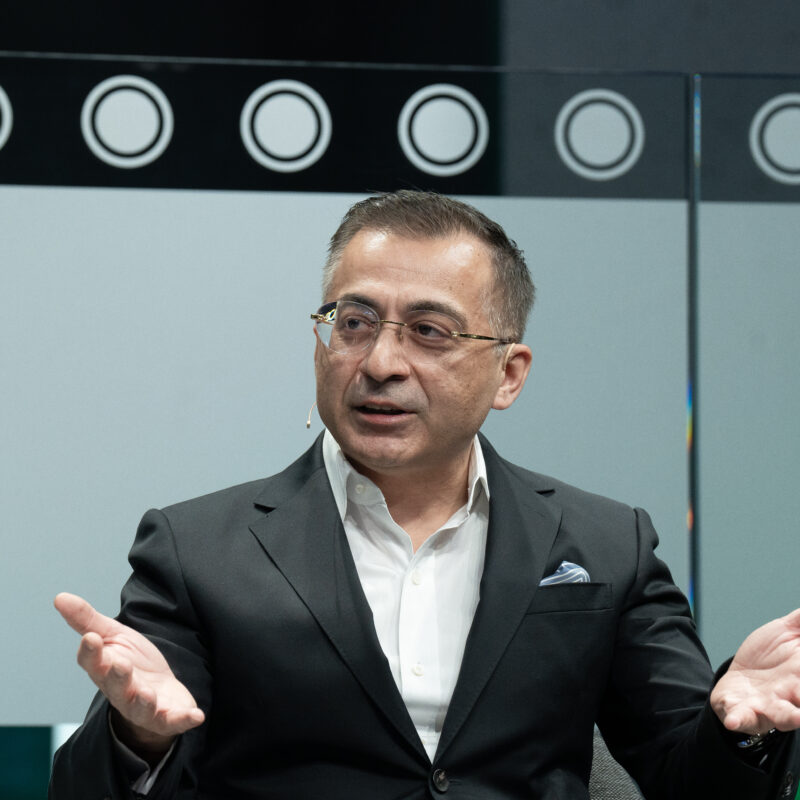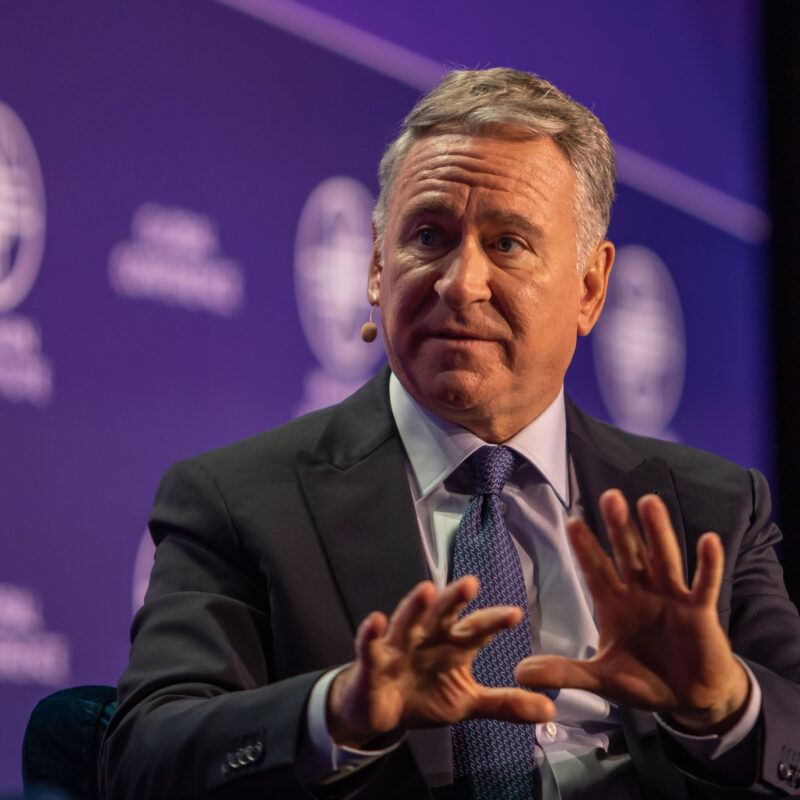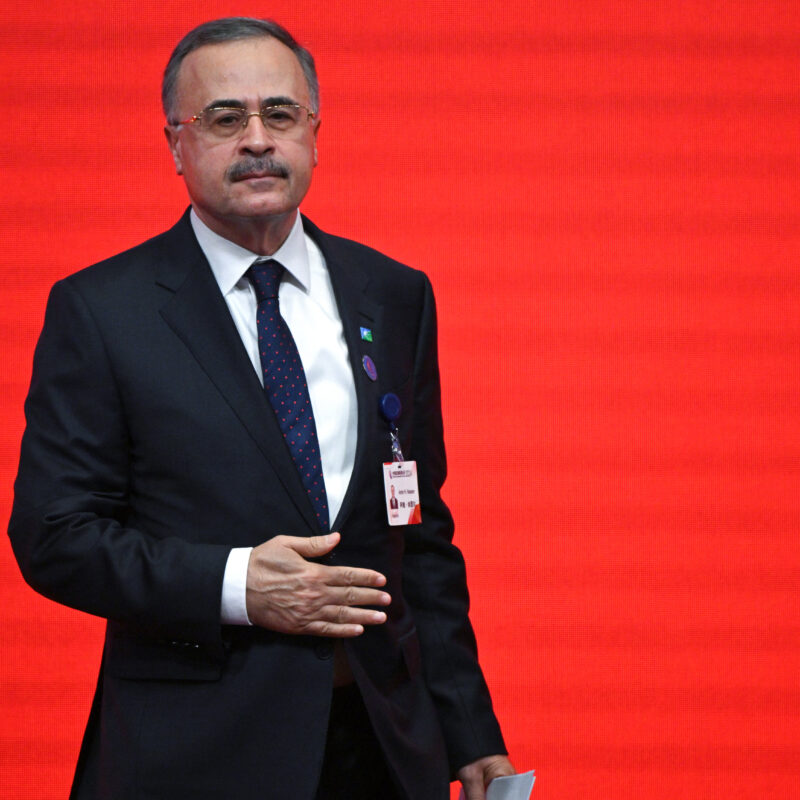Arabs and Israelis mull regional free-trade pact at Bahrain talks
Negotiators meet for backchannel discussions aimed at turning the Abraham Accords into an economic spark plug for the Middle East and Africa

Atlantic Council
(Left to right) Oren Eisner, president of the Jeffrey M. Talpins Foundation; Shaikh Abdulla bin Ahmed Al Khalifa, undersecretary for political affairs at Bahrain’s Foreign Ministry; William F. Wechsler, senior director of the Atlantic Council's N7 Initiative; and Morocco's Abduloauhed Rahal, director general of the trade division at Morocco’s Ministry of Industry and Trade, at the conference's opening dinner in Manama, Bahrain
Nearly three years after establishing diplomatic ties, representatives from a group of Arab countries and Israel met this week in Bahrain to brainstorm ideas about forming a regional free-trade alliance.
The discussions were unofficial and meant to lay the groundwork for future negotiations among the countries that normalized relations with Israel under the 2020 Abraham Accords. The talks were organized by the Atlantic Council, a Washington think tank, as part of the backchannel “N7 Initiative” it developed in partnership with the New York-based Jeffrey M. Talpins Foundation to bolster the Accords.
“We brought senior trade negotiators together for a private discussion… to do a road map for a multilateral, regional free-trade agreement,” William F. Wechsler, senior director of the Atlantic Council’s Middle East programs and head of the N7 project, told The Circuit.
Taking part in the talks on Monday and Tuesday were trade officials from Bahrain, the United Arab Emirates, Morocco and Israel, Wechsler said, as well as former officials from Egypt and Sudan. Jordan did not participate. The N7 brand refers to Israel and the six Arab countries that have signed peace treaties or normalization pacts with it. Under the rules of the conference, none of the trade negotiators’ names could be made public.
The back-channel talks provided an opportunity for government representatives to discuss concrete steps for advancing normalization face-to-face at a time when such encounters have become less frequent. A meeting of the U.S.-backed Negev Forum, comprising the foreign ministers of the seven countries, has been repeatedly postponed this year amid violent eruptions of the Israeli-Palestinian conflict that have been strongly condemned by the Arab countries in the N7.
The trade conference was the third in a series of N7 events aimed at generating ideas for specific areas of Arab-Israel cooperation that will be presented for consideration by the Negev Forum. It followed a March meeting in the UAE on agriculture, water and food security, and December talks in Morocco on education and coexistence.
Increasing the potential impact of the N7 project is the fact that it was directed until last month by Daniel Shapiro, the former U.S. ambassador to Israel. Shapiro was appointed on June 29 to be the State Department’s senior advisor on regional integration. In his announcement, Secretary of State Tony Blinken said Shapiro’s task was to help “deepen and broaden the Abraham Accords, and build the Negev Forum.”
The UAE and Israel signed a free-trade agreement last year that the two countries predict will generate $10 billion in annual bilateral economic activity by 2026. Bahrain has indicated it is also close to signing a free-trade agreement with Israel. Wechsler said that a regional agreement would bring extra benefits because “as you add countries, it has a multiplier effect on free trade.”
While the trade negotiators went unidentified at the conference, the participating nations sent senior officials to observe the discussions and join an opening dinner at the Sofitel Hotel in Bahrain’s capital city of Manama. Among them were Abdelouahed Rahal, director general of the trade division at Morocco’s Ministry of Industry and Trade; Shaikh Abdulla bin Ahmed Al Khalifa, undersecretary for political affairs at Bahrain’s Foreign Ministry; Israel’s ambassador to Bahrain, Eitan Naeh; and the U.S. ambassador to Bahrain, Steven Bondy.
